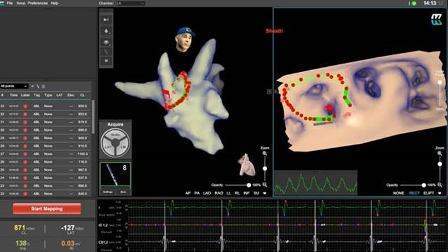
EPD is engaged in the development of innovative image-guided procedures for cardiac arrhythmias or heart rhythm disorders.
The firm’s cardiac imaging and navigation system enables electrophysiologists navigate the heart by generating a detailed 3D image of the cardiac anatomy, as well as the location and orientation of catheters during the diagnostic and therapeutic procedures for cardiac arrhythmias.
The acquisition is said to complement Philips’ portfolio of interventional imaging systems, smart catheters, planning and navigation software, and services, in addition to entering into the €2bn market for image-guided treatment of cardiac arrhythmias.
Royal Philips CEO Frans van Houten said: “EPD’s breakthrough innovation provides detailed 3D anatomical information of the heart during cardiac arrhythmia ablation procedures that is unique in the industry.
“The technology has the potential to address the key unmet need of real-time therapy assessment, which is one of the more significant limitations of the current standard of care.”
The combination of Philips’ interventional imaging systems such as Azurion and EPD’s cardiac imaging and navigation system offers maps and data to electrophysiologists, enabling to guide various catheters to locate and treat cardiac arrhythmias.
In February this year, EPD’s system secured CE mark approval, and is based on software algorithms and single-use electromagnetic sensors used in conjunction with standard electrophysiology catheters.
Currently, the US Food and Drug Administration (FDA) is reviewing the system under premarket notification for imaging and navigation during arrhythmia ablation procedures.
Subject to customary closing conditions, the deal is expected to complete by the end of next month.
EPD Solutions founder and chairman professor Shlomo Ben-Haim said: “I am convinced that as part of Philips, we will be able to grow EPD and help many electrophysiologists and patients worldwide, as we aim to reduce procedure costs, simplify navigation and treatment, and ultimately improve procedure efficacy.”





